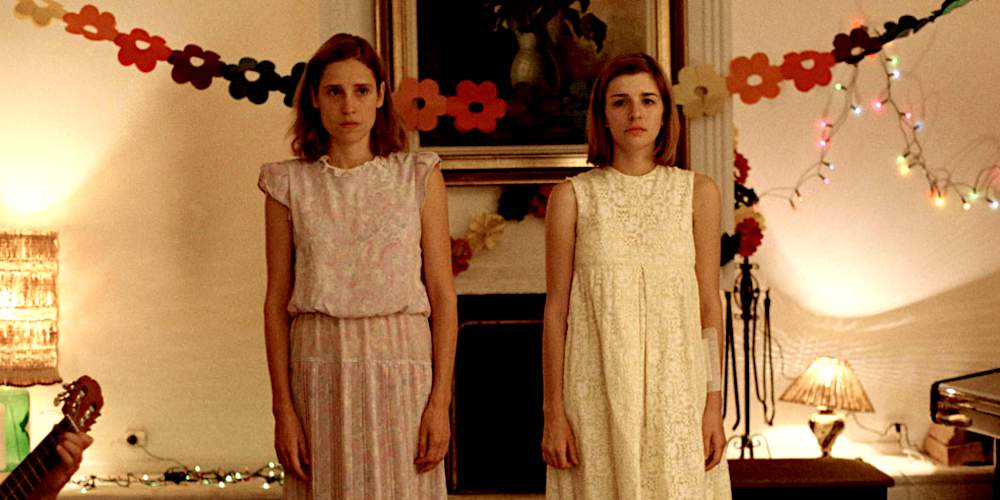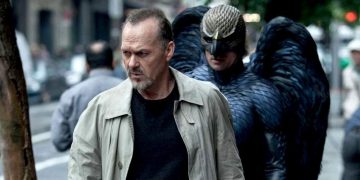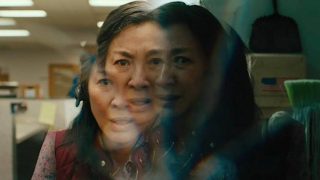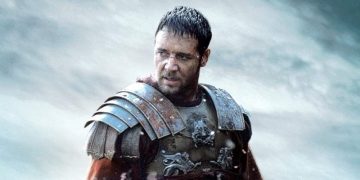Hollywood is chock full of beloved movie directors who have diehard fans that can quote nearly every line from their most favorited works.
But even the greatest Hollywood movie directors can produce films that get buried in the recesses of their filmography—and the unfortunate fact is that some of those forgotten films are true masterpieces.
Sure, these movies that flew under the radar may have been lauded by critics at the time, but for one reason or another, they were skipped over by general audiences. It just goes to show that you need more than just a great movie to make waves in Hollywood.
Here are some of the best films by famous movie directors that were overlooked, forgotten, and lost amidst other popular movies. If you haven't seen these films, you really ought to check them out.
5. After Hours (1985)
1985 was a huge year for movies. With instant classics like The Goonies, The Breakfast Club, and Back to the Future dominating the box office, Martin Scorsese's After Hours had almost no chance.
To give you an idea, Back to the Future made nearly $400 million at the box office while Scorsese's After Hours made a measly $10 million.
As newer filmmakers like Robert Zemeckis and John Hughes burst onto the scene and tapped into the youthful market of the decade, Scorsese's style likely seemed old-fashioned compared to their vibrant, upbeat movies.
After Hours struggled to catch the attention of the general population that it rightfully deserved, and without that first round of success, it failed to live on in pop culture. Few have ever heard of this film.
And that's a shame because After Hours is spectacularly funny, dark, and farcical. It follows a man who's simply desperate to get home after a series of unfortunate encounters and near-fatal misunderstandings.
It's the kind of film that reminds you of your own crazy nights out that you've had, where everything that could've gone wrong did go wrong. This is a story filled with vibrant, insane, and lonely people, that has everything you'd ever want from a lesser-known gem.
4. A Serious Man (2009)
The Coen brothers have produced cult classics out the wazoo, with hit film after hit film over the course of their four-decades-long careers.
Between Fargo (1996), The Big Lebowski (1998), O Brother, Where Art Thou? (2000), and No Country for Old Men (2007), it's clear that the Coen brothers can turn whatever they touch into cinematic gold.
Unfortunately, this ability to create culturally relevant cinema casts a shadow over their "quieter" works. From Barton Fink (1994) to The Man Who Wasn't There (2001), they've made numerous movies that never quite got the attention they deserve.
And among them, the most criminally underrated film of their careers has to be A Serious Man (2009). Though universally praised by critics, it made a mere $30 million at the box office. By comparison, No Country for Old Men—which released only two years prior—grossed over $170 million.
A Serious Man is witty, intelligent, and deals with profound questions of life in a whimsical manner that only the Coen brothers could manage. Their use of symbolism and dream sequences are both hilarious and poignant as they blend themes of existentialism, religion, and mortality.
This one isn't just one of their most personal films ever made, but also one of their funniest to date.
3. Dogtooth (2009)
Yorgos Lanthimos has one of the most distinctive styles of any modern director, and with it he's carved out a niche founded on unique dialogue and comedic timing. His films often depict characters who are trapped in sad, cruel, and lonely dystopias ruled by apathetic leaders.
He has two strong films under his belt: The Lobster (2015), which was generally liked by audiences, and The Favourite (2018), which was one of the best films of the year and featured incredible performances from Oliva Coleman, Emma Stone, and Rachel Weisz.
But before those two films, Lanthimos was one of the frontrunners of the "Greek Weird Wave" movement, and his film Dogtooth (2009) was quite possibly the strangest film of the 2000s.
It centers on three children who aren't allowed to leave their home, along with their mother and father who are determined to keep them detached from the rest of the world. The stilted dialogue and performances brilliantly reflect the stunted psychologies of the oppressed children.
Perplexing, oddly funny, and deeply disturbing, it's one of Lanthimos's most "pure" works—and that's why Dogtooth is an important film for anyone who's interested in the origins of the filmmaker's style.
With Dogtooth, Lanthimos explores ideas and themes like exploitation, isolation, and mental illness. It even features a climactic scene in a bathroom that mirrors the closing shot of his later film The Lobster. A fantastically bizarre film, Dogtooth is still criminally underseen.
2. Prisoners (2013)
Denis Villeneuve has gained wider and wider commercial appeal with every subsequent film, becoming one of the most coveted directors in Hollywood with Blade Runner 2049 (2017) and Dune (2021).
With a brilliant eye for composition, color, and staging, Villeneuve has established himself as a kind of meditative filmmaker. But buried within his highly praised films is one that's often overlooked: the superbly thrilling and haunting revenge tale, Prisoners (2013).
In this movie about the devastating effects of violence, fear, and loss, Hugh Jackman and Jake Gyllenhaal both deliver tour-de-force performances. The pace moves along at a slow, considered rhythm that never feels labored, while the subtext focuses on our faith and how humans stare into the blackness of the universe without being overcome by despair.
While Villeneuve made several brilliant films afterwards—most notably Sicario (2015) and Arrival (2016)—this under-recognized masterpiece remains his best work. Prisoners is equally as terrifying as it is philosophical, keeping us in the palm of its hand all the way through.
1. Barry Lyndon (1975)
Stanley Kubrick is one of the greatest filmmakers of all time. His brilliance spans decades, from Paths of Glory (1957) to Eyes Wide Shut (1999), but his legacy is usually summed up in three films: 2001: A Space Odyssey (1968), A Clockwork Orange (1971), and The Shining (1980).
But in the midst of those three, Kubrick made the most beautiful film of his entire career: Barry Lyndon (1975). It's the kind of movie that feels lyrical, complete with some of the most exquisite cinematography in history.
Barry Lyndon follows one man's rise through 18th century British society using nothing more than his wit, his cunning, and his thirst for power. Through his journey, we see that he's far from a good person—indeed, he freely exploits those around him for his own gain.
Gorgeously shot and wonderfully written, Barry Lyndon has a magical pacing that sweeps you up into Barry Lyndon's successes and failures. Yet, sadly, it's a film that's rarely mentioned whenever there's discussion of Stanley Kubrick's best works.
Sure, the man excelled in nearly all genres—from horror to comedy, war to science fiction, mystery to historical drama—and he always infused his genius into every outing. But Barry Lyndon is his crowning achievement, and we hope this period piece is more widely recognized in the future.



